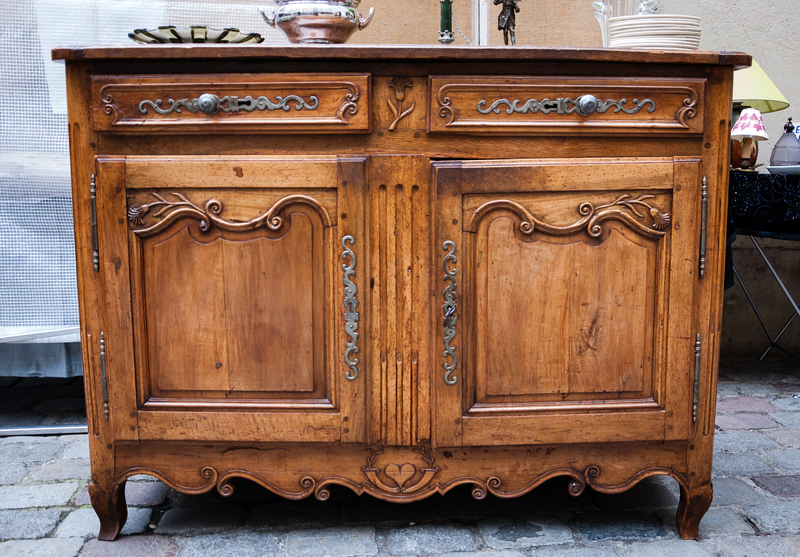Reuse, Recycle, and Save: Bulky Waste Item Edition
Bulky waste items, such as old furniture, mattresses, appliances, and garden waste, pose a unique challenge when it comes to responsible disposal. These items are too large for regular waste bins, and improperly discarding them can strain landfill capacities and harm the environment. However, with a little know-how, you can turn bulky waste disposal into an opportunity to reuse, recycle, and save money. In this comprehensive guide, we'll cover creative and sustainable strategies to handle, repurpose, and recycle large unwanted items, ensuring you make the most eco-friendly choices while potentially benefiting your community and wallet.

Why Is Responsible Bulky Waste Management Important?
Large household items often contain materials that can be reused, recycled, or pose hazards if left in landfills. Here's why managing your bulky waste responsibly should be a top priority:
- Environmental Protection: Many bulky items contain components like metals, wood, and plastics that, if dumped, can contribute to soil and water pollution.
- Resource Conservation: Recycling and reusing items prevent the depletion of natural resources and reduce the demand for new products.
- Cost Savings: Proper bulk waste recycling can save money on disposal costs and sometimes earn you a little back through selling or documenting charitable donations.
- Community Benefit: Donating usable items can benefit those in need and support local charitable organizations.
What Are Bulky Waste Items?
Bulky waste items are large materials that cannot be accommodated by regular household bins. Examples include:
- Furniture: sofas, chairs, tables, wardrobes, beds
- Appliances: refrigerators, washing machines, ovens, microwaves
- Mattresses and box springs
- Carpets, rugs, and padding
- Large electronics: televisions, speakers, desktop computers
- Yard debris: tree limbs, large branches, garden fencing
Understanding what qualifies as a bulky item helps you choose the best reuse and recycling option for each item.
How to Identify Reusable and Recyclable Bulky Waste
Before scheduling a pickup or dropping off items at a landfill, inspect your bulky waste. Ask:
- Is the item still functional? If yes, consider donating or selling.
- Is it made from single or mixed materials? Some items are easier to recycle if they're not combined with other materials (e.g., pure wood versus wood with metal parts).
- Can it be repaired easily? Minor fixes might keep items in use longer.
Creative Ways to Reuse Bulky Waste Items
1. Donate to Charities and Nonprofits
Before discarding, check if local shelters, thrift stores, or non-profit organizations accept large household items in good condition. Many will even pick up items for free, saving you time and money on transportation and disposal fees.
2. Upcycle for DIY Projects
Upcycling transforms waste items into new products with added value. Some fun ideas include:
- Turn old wooden pallets into garden planters or outdoor furniture.
- Convert a broken dresser into a workbench or storage organizer.
- Use mattress springs to create unique wall art or garden decorations.
3. Sell or Giveaway Online
Online marketplaces such as Craigslist, Facebook Marketplace, Freecycle, and OfferUp are great platforms to list large items you no longer need. Even if something is broken, many buyers are looking for spare parts or materials.
4. Refurbish for Personal Use
With a little creativity, many bulky waste items can be refreshed. Sand and paint old furniture for a new look or replace worn-out components to extend their life.
Recycling Bulky Waste: Your Comprehensive Guide
Where to Recycle Bulky Items?
Not every bulky waste item can go in your curbside bin. Here's how to find the right recycling option:
- Council/municipal bulky waste collections: Many local authorities offer scheduled pickups or drop-off days for large household items.
- Recycling centers and transfer stations: Contact your nearest facility to ask which items are accepted and how to prepare them.
- Specialty recycling programs: Some retailers and manufacturers run take-back programs for electronics and appliances.
What Bulk Waste Items Are Commonly Recyclable?
- Metals: Bed frames, appliances, and metal furniture are often recyclable as scrap metal.
- Wood: Untreated wood can sometimes be recycled, chipped for mulch, or reused in local projects.
- Mattresses: Many centres deconstruct mattresses to recycle the metal springs, foam, and fabric.
- Electronics: TVs, monitors, and computers contain valuable parts and hazardous components and should always be recycled at specialized facilities.
How to Prepare Bulky Waste Items for Recycling
- Disassemble if possible: Take apart items to separate materials for easier sorting and recycling.
- Clean items: Remove dirt, food remnants, or other contaminants to improve the quality of recyclables.
- Check for restrictions: Some centers will not accept items contaminated with hazardous materials or excessive mold.
Sustainable Bulky Waste Disposal Solutions
Hire Eco-Friendly Bulk Waste Removal Services
Some junk removal and waste collection companies specialize in sustainable bulky waste disposal. Make sure to:
- Ask about their recycling policies and landfill diversion rates.
- Choose companies with certifications or those aligned with green business practices.
- Ensure they provide receipts or documentation for any item donations (helpful for tax deductions).
Utilize Manufacturer Take-Back and Retailer Programs
Many big-box retailers and manufacturers offer programs to accept used appliances, electronics, and even furniture when you purchase replacements. These programs often guarantee environmentally responsible disposal or refurbishment.
How Reusing and Recycling Bulky Waste Saves You Money
- Reduced landfill fees: Avoid or reduce landfill charges by diverting items for reuse or recycling.
- Tax deductions: Donating bulky items to charity may make you eligible for tax-saving opportunities.
- Earnings from reselling: Sell unwanted items online or at a garage sale to make money from your "waste."
- Avoiding replacement costs: Upcycling or refurbishing can give you "new" furniture or decor for less.
- Community sharing: Donating or sharing keeps goods circulating, benefiting the local economy and reducing the demand for imported goods.
The Bigger Picture: Environmental and Social Impacts
Proper bulky waste recycling does more than save money; it's essential for a healthy planet and community. Key benefits include:
- Diverts waste from landfills
- Reduces greenhouse gas emissions from manufacturing and waste decomposition
- Saves raw materials by reintroducing components and materials into the supply chain
- Promotes community well-being by enabling item donations and reuse projects
- Encourages innovation through upcycling and creative reuse initiatives
Common Challenges in Bulky Waste Management (And Solutions!)
- Limited transportation: Large items can be hard to move without the right vehicle. Solution: Use community pickup days or hire a local junk removal service.
- Confusing local regulations: Rules for bulky item disposal vary by city. Solution: Check your local council or city's website for specific guidelines.
- Unsure what can be recycled: Materials and item types accepted by recycling centers can be inconsistent. Solution: Call ahead or use online directories like Earth911 to find appropriate facilities.
Bulky Waste Recycling: Myths vs. Facts
- Myth: All bulky items end up in landfills. Fact: Many bulky items can be recycled or reused, significantly reducing environmental impact.
- Myth: It's not worth the hassle to recycle large items. Fact: Responsible recycling can be easy with available pick-up and drop-off services.
- Myth: Only brand-new items are suitable for donation. Fact: Many charities accept second-hand items in good or repairable condition.

Tips for a Zero Waste Approach With Bulky Items
- Buy quality, not quantity: Selecting durable furniture and appliances reduces the need for frequent replacement and disposal.
- Choose modular or repairable items: Items designed for easy repair are more likely to be reused.
- Embrace community swaps: Participate in local swap events to exchange large items you no longer need.
- Educate and advocate: Share knowledge about reuse and recycling with friends, family, and neighbors to expand impact.
Making the Most of Your Bulky Waste: A Sustainable Future
With rising landfill costs and growing environmental concerns, the way we handle bulky waste items is more important than ever. By prioritizing reuse and recycling, we conserve resources, support our communities, and even save money. Every item that's donated, upcycled, repaired, or properly recycled is a step toward a cleaner, greener future. Start sorting your bulky waste today, explore local options, and encourage others to join you in adopting responsible, sustainable habits--because every action adds up when it comes to protecting the planet and building a circular economy.